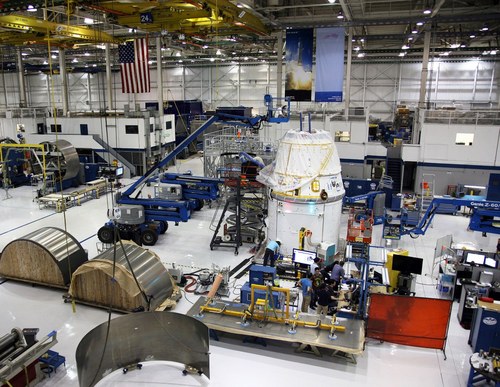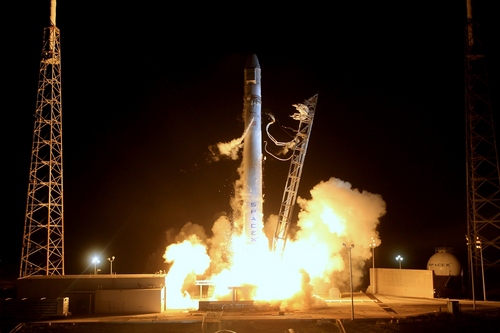When many of us think of disruption we think small. The client-server model disrupted the mainframe and mini market. Small hard drives in RAID formation disrupted larger hard drives. Tablets and smartphones disrupted PCs, etc. The digital device disrupted camera film, small IP communications companies disrupted large telecom equipment companies and eventually global phone networks.
Skype is a great example of a company which has absolutely changed the model of communications – not only did they take many billions of dollars out of the market for long-distance calling they also became a major video player before most carriers had a chance to come up with similar services they could have theoretically charged for.
So if a couple of entrepreneurs could disrupt the music industry using P2P technology and then transfer this technology to telephony, it shouldn’t be too surprising to learn that the space industry too can see new entrants change their markets. Specifically, SpaceX has changed the stodgy rocket industry occupied by companies such as ArianeSpace, ATK, Boeing, Lockheed-Martin and Pratt Whitney Rocketdyne.
SpaceX factory floor
Doug Mohney makes a compelling case that the rocket industry is facing its PC moment and this industry will experience amazing change. He further argues that IBM became a winner in the computer market by innovating and not being afraid to jettison (no pun intended) portions of its business such as PCs to focus on other areas which were more lucrative like consulting.
Here is an excerpt:
Once upon a time, glass-enclosed mainframes and minicomputers ruled the land. Companies like Burroughs, Cray, Control Data Corporation, Data General, Digital Equipment Corporation (DEC), IBM (News – Alert), NCR and UNIVAC were names that generated awe and respect with big iron computing machines.
Today, the only true survivor is IBM. The rest fell. Why?
Despite almost being a cliché for corporate stuffiness, IBM made three major changes in order to survive and thrive through decades of turmoil in the computing industry. First, the company launched a Skunk Works-style effort to develop the IBM PC, establishing a standard for desktop computing hardware during the chaos of the CP/M days. Second, the company embraced and popularized the Internet at an earlier stage. Having evolved from a hardware-based business to a services and solutions power, it was willing to shed its PC business.
He further argues that Boeing can potentially be the IBM of the rocket/space market.
SpaceX’s Falcon 9 rocket’s 9 engines ignite during launch from the SpaceX launch pad at Cape Canaveral Air Force Station, May 22, 2012. Credit: SpaceX
It is obviously way too soon to declare that SpaceX will have continued success in leading disruption in the rocket space. For one thing the industry functions more like a good-old-boys network than just about any other market I have seen. This generally means incumbents have huge advantages as they have existing relationships. But then again, many governments who fund these launches are piling up massive amounts of debt and one day soon may actually decide they need to cut their spending. This in-turn may lead to a time when launch partners are chosen more based on cost/benefit analysis than length of prior relationship.
That and the growing more price-sensitive commercial need for satellite players means disruption knows no bounds and cannot be stopped – regardless of industry. So it likely won’t take much time for existing players to exclaim, Houston, we have disruption… What do we do now?







